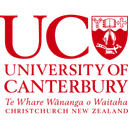This course is part of Field Volcanology and Hazards.
This comprehensive course takes you on a virtual journey through Icelandic volcanoes and New Zealand's volcanic landscapes. Through interactive field trips, expert interviews, and hands-on learning experiences, students will develop essential volcanologist skills. The course combines scientific understanding with cultural perspectives, featuring both Māori narratives and Icelandic folklore. Students will learn about eruption patterns, hazard management, and the practical applications of volcanic studies, including renewable geothermal energy. The course emphasizes both technical knowledge and cultural sensitivity in communicating volcanic processes.
Instructors:
English
English
What you'll learn
Analyze volcanic eruption patterns in Iceland and New Zealand
Develop field skills for identifying and describing volcanic rocks
Assess different types of volcanic hazards and their implications
Understand cultural perspectives on volcanic activity
Apply field data to evaluate volcanic hazard scenarios
Evaluate the benefits and risks of magma chamber drilling
Skills you'll gain
This course includes:
PreRecorded video
Graded assignments, Exams
Access on Mobile, Tablet, Desktop
Limited Access access
Shareable certificate
Closed caption
Get a Completion Certificate
Share your certificate with prospective employers and your professional network on LinkedIn.
Created by
Provided by

Top companies offer this course to their employees
Top companies provide this course to enhance their employees' skills, ensuring they excel in handling complex projects and drive organizational success.





Module Description
This course provides a comprehensive exploration of volcanic hazards, combining scientific analysis with practical field experience through virtual tours. Students learn to identify different types of volcanic rocks, understand eruption patterns, and assess associated hazards. The curriculum integrates traditional scientific knowledge with cultural perspectives, featuring both Māori narratives and Icelandic folklore. Key topics include field research techniques, hazard management strategies, and the potential of geothermal energy. The course emphasizes both technical understanding and effective communication of volcanic processes to diverse audiences.
Fee Structure
Individual course purchase is not available - to enroll in this course with a certificate, you need to purchase the complete Professional Certificate Course. For enrollment and detailed fee structure, visit the following: Field Volcanology and Hazards
Instructors
Pioneering Volcanologist and Innovative Science Educator
Ben Kennedy is a Professor in Volcanology and Earth Science Education Research at the University of Canterbury, where he has established himself as a leading figure in physical volcanology and geoscience education. His research spans a wide range of volcanic processes, from experimental volcanology to interpreting monitoring data and studying magma plumbing systems. After completing his Masters and PhD in volcanology at McGill University in Canada, he gained international experience working at the University of British Columbia and Munich University (LMU) before joining the University of Canterbury.

4 Courses
Innovative Earth Sciences Educator and Digital Learning Pioneer
Jonathan Davidson serves as Remote/Distance Lab Engineer at the University of Canterbury, where he combines his PhD in Geology with a passion for revolutionizing Earth science education. His expertise spans Earth Education Research, 3D modeling, and Geothermal Energy, with a particular focus on developing innovative digital teaching tools. His work earned international recognition when he and colleague Ben Kennedy won the 2021 edX Prize for their course "Exploring Volcanoes
Testimonials
Testimonials and success stories are a testament to the quality of this program and its impact on your career and learning journey. Be the first to help others make an informed decision by sharing your review of the course.
Frequently asked questions
Below are some of the most commonly asked questions about this course. We aim to provide clear and concise answers to help you better understand the course content, structure, and any other relevant information. If you have any additional questions or if your question is not listed here, please don't hesitate to reach out to our support team for further assistance.




